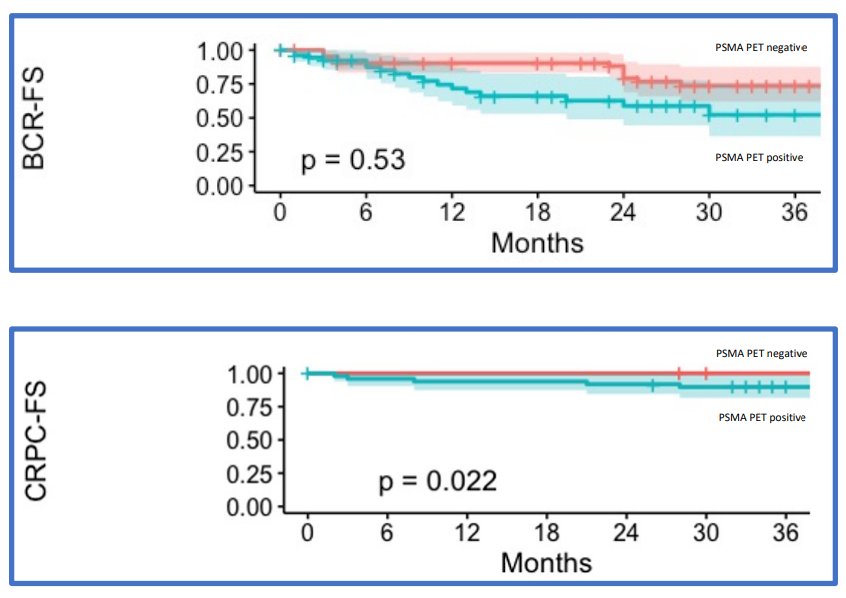(UroToday.com) In a moderated poster presentation at the 2022 American Urologic Association Annual Meeting held in New Orleans and virtually, Dr. Bianchi presented oncological outcomes of patients treated for recurrent prostate cancer on the basis of prostate specific membrane antigen (PSMA) PET/CT.
To do so, the authors retrospectively examined 240 patients with recurrent prostate cancer following radical prostatectomy treated at three European tertiary centers. Patients were stratified into two groups according to clinical presentation: group 1, including patients with first biochemical recurrence (BCR, n=143) and group 2, including men with BCR after previous salvage treatments (n=97). Each patient underwent PSMA PET/CT for restaging purposes. Following PSMA PET/CT, those patients with PSMA PET/CT evidence of oligometastatic (≤3 lesions) disease underwent PSMA-targeted salvage treatments. In contrast, those patients with poly-metastatic disease (>3 lesions) on PSMA PET/CT underwent systemic therapy. Finally, those patients with negative PSMA PET/CT imaging were treated with non-imaging guided salvage therapy according to the risk of local or systemic recurrence. The authors considered differing outcomes in the two clinical scenarios: among those in group 1, the primary outcome was further BCR and radiologic progression while in group 2 further BCR, radiologic progression and occurrence of castration resistant prostate cancer (CRPC) were considered. Time to each of these events was examined using the Kaplan-Meier technique.
The authors identified 143 men with first biochemical recurrence (group 1). The median PSA at the time of PSMA PET/CT was 0.39 ng/ml in this cohort. Among the 143 patients, 68 (47.6%) men had positive PSMA PET/CT. Patients with positive PSMA PET/CT had higher median PSA at failure after salvage treatment (p=0.001) and shorter time to BCR (all p ≤0.01). Over a median follow up of 60 months, the BCR-free survival (BCR-FS) and radiologic progression-free survival (rP-FS) at 3-years were 74% vs. 64% and 90% vs. 80% in patients with negative and positive PSMA PET/CT, respectively, though these were not statistically significant differences (all p ≥0.05).
In group 2, including men with BCR after previous salvage treatments, the median PSA at the time of PSMA PET/CT was 0.7 ng/ml. In this group, 62 of 97 (64%) men had positive PSMA PET/CT. Men with positive PSMA PET/CT had higher median PSA at PSMA PET/CT. With a median follow up of 92 months, the BCR-free survival (BCR-FS), radiologic progression-free survival (rP-FS) and CRPC-free survival at 3-years were 55% vs. 43% (p=0.2), 80% vs. 56 (p=0.02) and 100% vs. 88 (p ≤0.02) in patients with negative and positive PSMA PET/CT, respectively.

In the context of first biochemical recurrence, the authors conclude that men with positive PSMA PET/CT had comparable oncologic outcomes compared to men with negative PSMA PET/CT. In contrast, among those who had previously received salvage therapy, a positive PSMA-PET/CT is associated with worse oncologic outcomes despite increasing adoption of PSMA-guided treatment.
Presented by: Lorenzo Bianchi, MD – Alma Mater Studiorum, University of Bologna, Department of Urology Bologna


